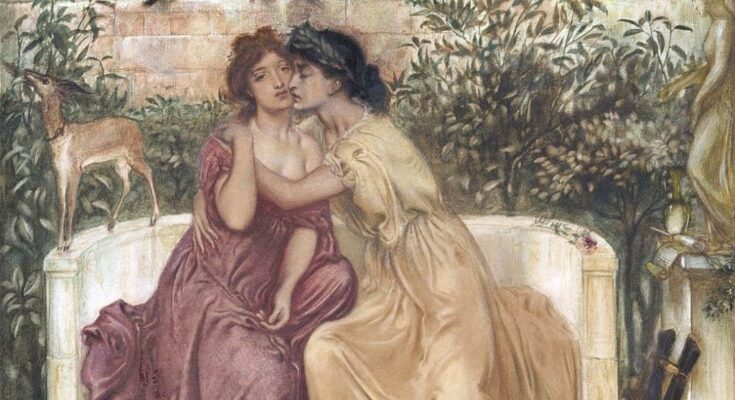
Ancient Greece is known for many things, but how many of us know that there were a select few women who became exceptional poets during this long period of time?
Despite what many believe, ancient Greece was not a place dominated just by male poets. Women also made significant contributions to the world of poetry, leaving a truly remarkable legacy on the cultural heritage of Greece and the world.
From the iconic Sappho, who has been celebrated around the world, to lesser-known but equally talented poets like Erinna, Anyte, and Nossis, these women’s works have traveled through the ages.
The lyrical legend of Lesbos
Sappho is by far the most prominent and well-known female ancient Greek poet. No discussion of women poets in ancient Greece would be complete without mentioning Sappho.
Born on the island of Lesbos around 630 BC, the lyric poetry of this incredible woman revolutionized the genre with its deeply personal and emotional tone. Despite the fact that most of her poems survive in small fragments, we can identify themes of love, desire and real introspection in her writing. This is particularly evident in her famous “Ode to Aphrodite.”
The tremendous influence of Sappho in the literary world of ancient Greece and the world earned her the title of the “Tenth Muse.”

Erinna, the other important woman poet of ancient Greece
Erinna is a relatively unknown figure who was a contemporary of Sappho. She was born on the small Greek island of Tilos. She is another example of a notable figure among the women poets of ancient Greece as her works have managed to survive to this day. Her most famous work is titled “The Distaff” and is a deeply moving lament for her childhood friend Baucis, who died very young.
This 300-line hexameter poem is written in a mix of the Aeolic and Doric dialects of ancient Greek. This poem shows clearly Erinna’s ability to describe deep emotions and the profound impact of human loss, presenting to the readers the foundational nature of grief within one’s life.

Anyte of Tegea
Anyte of Tegea was an epigrammatist who lived in the early 3rd century BC.
Even though not many people know her, she is renowned for her pastoral poetry. Her beautiful and vivid descriptions of nature along with her thought-provoking way of writing, earned her the nickname “female Homer.”
Many of Anyte’s epigrams which have been luckily preserved in the Greek Anthology, talk about topics such as beauty as a notion and the meaning of the natural world.

Nossis
Nossis was a character who lived a few years after Sappho, Erinna and Anyte. She was born in Epizephyrian Locris in Magna Graecia in the 3rd century BC.
She managed to become a prominent figure among the women poets of ancient Greece because of her talent and is primarily known for her epigrams. These works deal with issues such as personal reflections and the female experience of life.
Her epigrams are characterized by wit and intimacy, capturing the small and unimportant all the way to the most foundational aspects of everyday life through a distinctly female lens.
Nossis is one of the most well-preserved women poets of ancient Greece, thus we know a lot about her works.
These women poets of ancient Greece, from Sappho to Nossis, have undoubtedly left their distinctive mark on the world of literature. Their magnificent works help us understand many aspects of the human psyche of the past and continue to be relevant and resonate with modern readers regardless of gender, ethnicity or personal beliefs.



